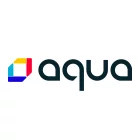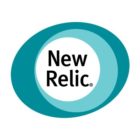
Aqua Security Wins Best Newcomer Security Company of the Year In 2017 SC Awards Europe
“What I find particularly impressive about Aqua Security is that it is making security accessible to IT professionals outside of security – specifically, DevOps practitioners.”
How to Get Started with Containerization
Given how truly disruptive containers are, it’s easy to get excited and want to go all in. But there’s much to be gained by getting a lay of the land before you jump.

Container & DevSecOps Digest | June: Kubernetes, HIPAA Compliance and Secrets Management
This month we have some stellar stories and one exciting webinar. From the container ecosystem:
RedHat goes tete-a-tete with Docker, Kubernetes and OpenStack on what’s next for them.
Learn how to secure containers on IBM Bluemix.
A step-by-step guide on HIPAA Compliance for Containers that walks you through key areas affecting containers and HIPAA.
If you think that you’re container-savvy, then our fun quiz is just for you!
On 28 June we’re hosting a webinar on managing secrets in containers

8 Habits of Highly Successful Operations Practitioners
“Making sure your systems are secure is part of the job,” says Amir Jerbi, co-founder and CTO of container security firm Aqua Security. “It won’t win you any prizes, but failing at security could cost an ops person their job. So keeping security top of mind must be part of their DNA.”

Outsourcing security: Would you turn over the keys to a third party?
Amir Jerbi, CTO of container security company Aqua Security, said MSSPs are a at a level of maturity that is often as good as or better than in-house security.

Container & DevSecOps Digest | May Edition: OpenShift, Forrester Webinar, and More
This month our Container & DevSecOps Digest features stories from DockerCon Austin, which was the biggest Docker event to date with over 5,000 attendees. At RedHat we heard about a new service called OpenShift.io, an online development environment dedicated to containers only; and in Australia container adoption is steadily increasing so for the very first time, a conference dedicated to container technology will take plance in Sydney (and we even have a special price for you!).

Are Containers the Key to DevSecOps?
How are containers changing DevOps? By enabling DevSecOps. That, at least, is the message from Aqua Security, which is pushing the thesis that containers are the key to achieving automated, predictable security operations.

Third parties leave your network open to attacks
If an enterprise lets a third party onto their network, regardless of the reason, that third party then becomes an integral part of their security perimeter, notes Amir Jerbi, CTO of container security company Aqua Security. “Organizations should therefore vet third parties for their security measures and practices and ensure they are aligned with their own, and furthermore, periodically check and test those practices to verify they are still in compliance. These checks may (and should) cover systems, process and people.”
